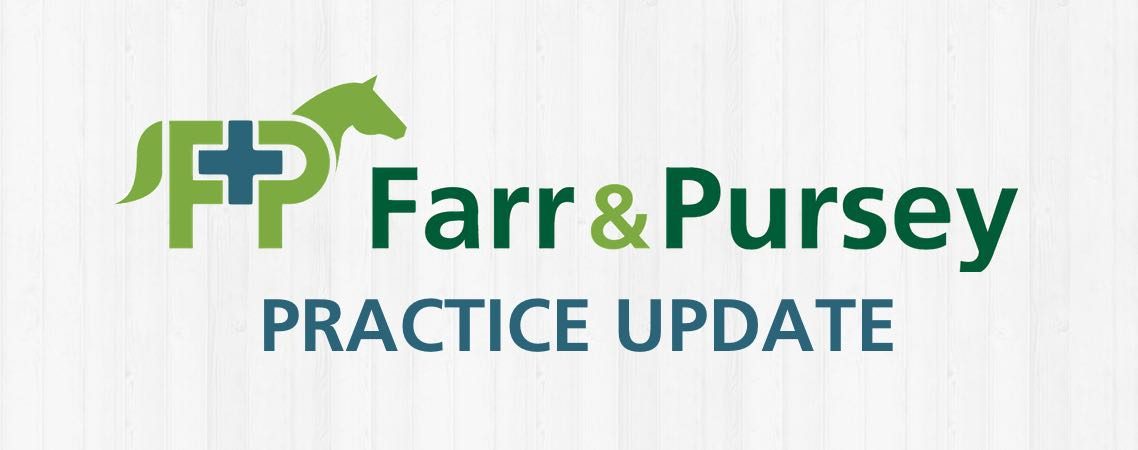
Update on vaccination guidelines
Got a question about vaccine guidelines…. read on
As of the 1st of January 2024, any horse receiving a new primary course of the influenza vaccine must be vaccinated according to the following schedule:
1st vaccine administered
2nd vaccine must be administered 21-60 days after 1st vaccine
3rd vaccine (1st booster) must be administered 120-180 days after the 2nd vaccine.
Further booster must be administered at a maximum of 12 month intervals. Horses competing in certain events must have received a booster within 6 months (+21 days depending on the governing body), and not within 7 days before arrival at a competition. When competing, horses may compete 7 days after receiving the 2nd vaccination of the primary course.
We recommend all clients check the guidelines with their representing governing body.
So why are flu vaccines so important?
Equine influenza virus, ‘Flu’, is one of the most common causes of respiratory infections in horses in the UK causing fever, nasal discharge and coughing. It is a highly contagious disease spread by direct contact and in the air, with the ability to spread up to 5km! So even if your horse is not in direct contact with other horses they can still catch the virus if there are other horses in the area.
With only 1-2 days between exposure and developing the signs of flu (the incubation period) flu can spread rapidly.
By vaccinating we aim to reduced the spread by reducing the number of horses affected and reducing the severity of the clinical signs they experience. Whilst not fatal to the adult healthy horse, young stock and older horses are more at risk of significant illness.
Flu or Flu and Tet, which vaccine do I need and what is the difference?
Tetanus (Tet) vaccines are administered every two years, often as a combined vaccine with Flu. Tetanus is a bacterial infection caused by Clostridium Tetani, a bacteria that lives in the soil. Once infected, most commonly through open wounds, the bacteria produce a toxin that attack the horses nervous system. This attack on the nervous system leads to the following signs:
- Muscle stiffness – resulting in a ‘rocking horse’ stance and ‘lock-jaw’
- Difficulty eating and moving
- Protrusion of the third eyelid
Rapidly progressing to seizures and in many cases, despite treatment, death.
Vaccinated horses are able to neutralise the toxins produced by the bacteria before they cause the often fatal signs.
Tetanus antitoxin can be administered by a vet at the time of injury if vaccines are overdue, but the best protection for your horse is keeping vaccines up to date.
Signs of Tetanus can take from 1 to several weeks to develop (average 10 days), so it is very important to contact your vet in the case of wounds in an unvaccinated horse, even if the wound is a few days old and no signs have been seen.
Are there any other vaccines my horse needs?
Whilst not regulated by many covering bodies, vaccines are also available to Equine Herpes Virus (EVH) 1 and 4.
EHV is a group of highly contagious airborne viruses that can cause fever, upper respiratory disease, abortions, neurological disease and neonatal death (death in the newborn foal).
The vaccination schedule for EHV (1,4) is as follows:
1st vaccine administered
2nd vaccine administered 4-6 weeks later
Subsequent boosters given at no more that 6 month intervals.
The purpose of vaccination is to shorten the duration of infection in infected horses and therefore limiting the time the virus is being shed, subsequently reducing the spread.
As EHV is known to cause abortions in pregnant mares, it is advised that broodmares receive EHV vaccinations at 5, 7 and 9 months gestation.

Recent Comments